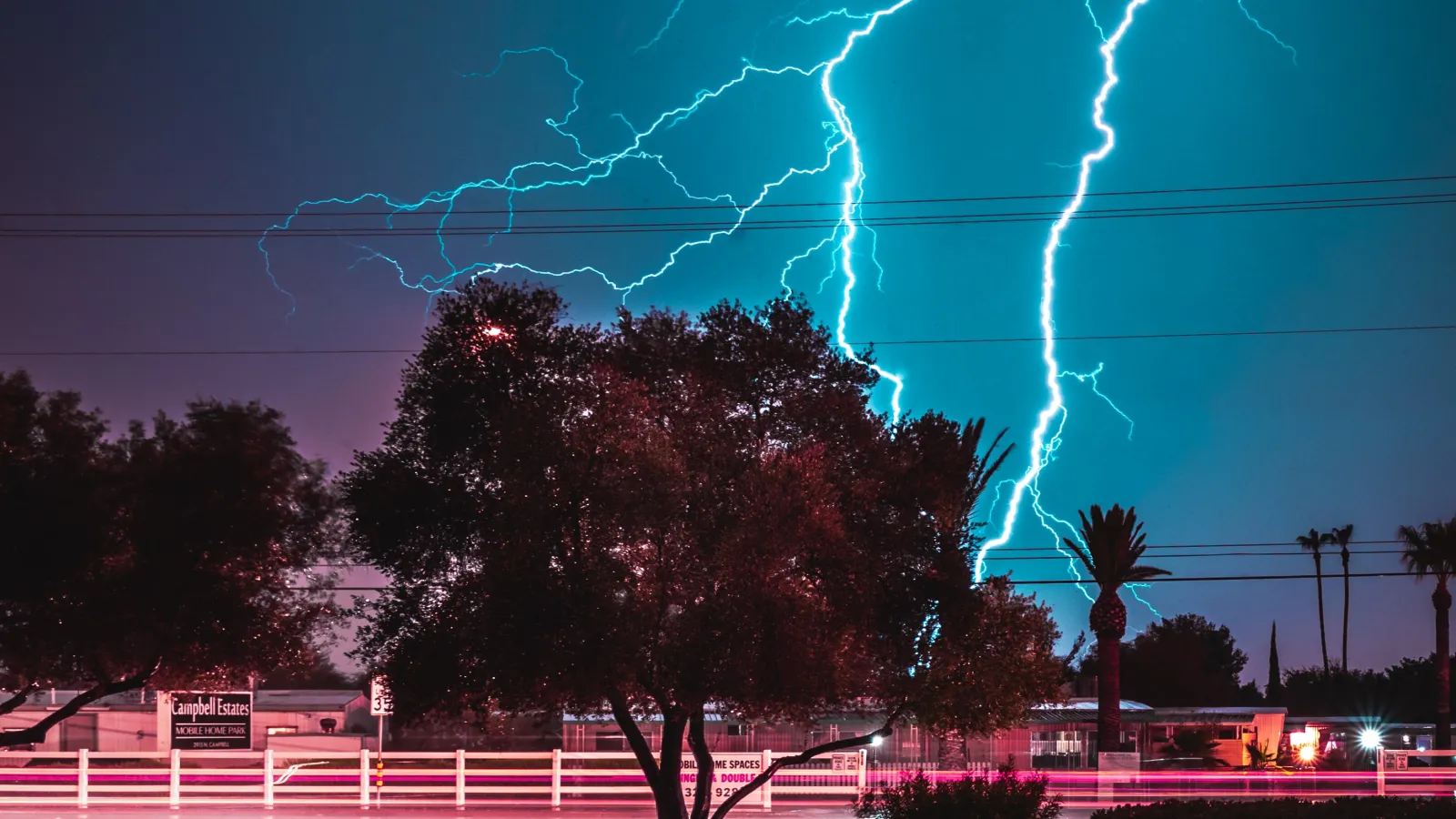Lightning Protection Keeps Your Home Safe

Spring and summer storms light up the sky and provide a beautiful backdrop. However, as storms approach your neighborhood and home, then possible damage becomes a legitimate issues. Does your home have lightning protection?
Why does lightning protection make a difference?
In fact, homeowners experience tens of thousands of dollars due to electrical surges destroying home electronics and appliances.
Most people wait and install lightning protections, such as a whole house surge protector, but only after learning their lesson. Don't be like most people and protect your expensive electronics!
Why Does Home Lightning Protection Make A Difference?
First and foremost, if you live in an area prone to thunderstorms, then lightning protection provides peace of mind. Not only does proper home protection provide additional safety, but the solutions remain very inexpensive.
Plus, lightning strikes, if the energy flows into your home can cause expensive damage to sensitive electrical equipment.
- Do you have a large flat screen TV?
- How many computers or gaming devices are plugged into your wall?
- Does your washing machine, dryer, dishwasher or stove rely on electricity?
Lightning strikes up to one mile away pack so much power that they can still damage these expensive electrical equipment and appliances.
Additionally, many home insurance policies do not cover lightning strikes (so check your policy today!). Yet, most insurance companies offer a discount for homes with whole house surge protectors!
What Is Lightning Protection?
Many of us may think about a lightning rod as protection. Electricity seeks the fastest and quickest path to the ground, which is why electrical grounding is also important to protect your home. Lightning rods, which are made from a conductive material, are fixed to an exposed part of a home or building, which attracts and diverts lightning to the ground.
However, attracting lightning means exposing your home to a ton of energy.
"The typical bolt of lightning carries around 5 billion joules (GJ, gigajoules) of energy, or the energy stored in 145 liters of gasoline. For comparison, a ton of TNT is around 4 gigajoules — so, we're talking about quite a lot of energy here, concentrated in a very short period of time. Despite lightning protection systems, these strikes still cause around $1 billion in structural damage annually in the US — so there's obviously space for improvement."
Enter whole house surge protectors. Similar to the well know outlet surge protector, a whole house surge protector helps prevent electrical shocks from flowing through your devices.
How Do Power Surges Move Into My House?
Interestingly, the average home receives over 20 energy spikes every day. But what does this mean?
Although the most dramatic imagery and damage occurs from a lightning strike, lightning remains a secondary driver of damage to home appliances and electronics.
Why?
Most damage results from normal daily surges from the routine power grid. In many states, the power grid remains outdated and overloaded. Therefore, as power demand increases (such as additional electricity to power A/Cs around a city or town), the grid does not have the capacity to expand and provide additional power.
Typically, electricity flows from AC power lines, cable lines and network cables. The sudden demand on the grid causes surge conditions and we experience a sag in the flow of power. Have your lights ever dimmed? This is an example of a surge in power.
As grids continue to age and our reliance on electricity increases, the frequency and severity of power surges will only deepen. As a result, home power surges continue to prematurely reduce the longevity of electronics and appliances.
Can Snappy Help?
Yes! Snappy offers licensed electricians that assess your home electrical system and determine the best surge protection options available to protect your home. Plus, all of our equipment comes with a money back guarantee if it fails to protect your home.
We think it's a no brainer!

